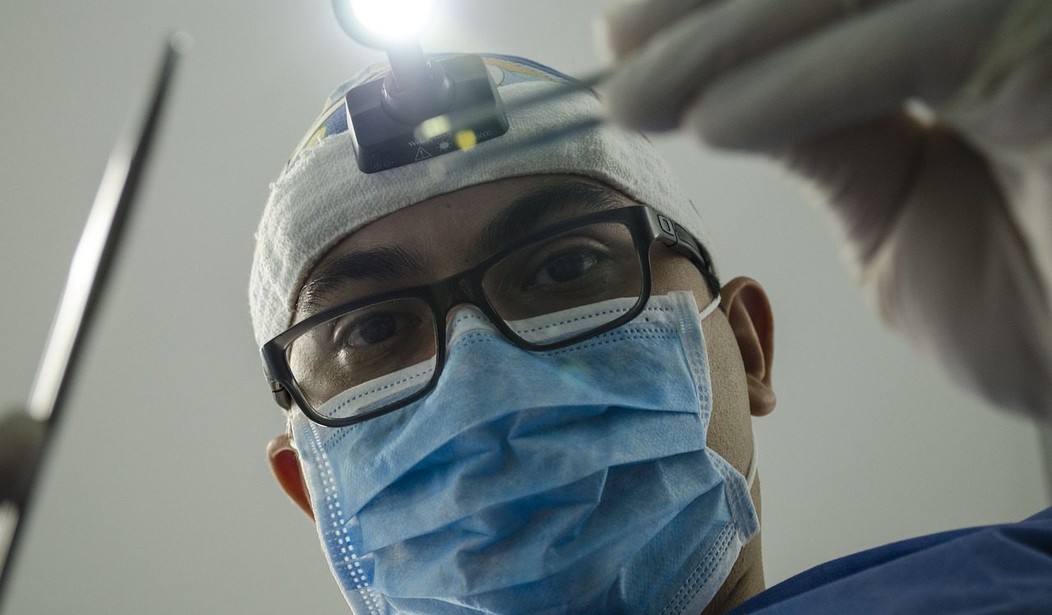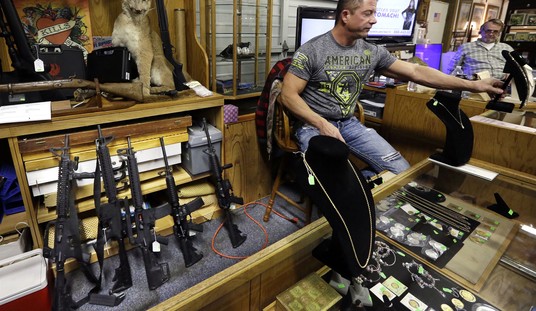As a former Navy corpsman, I was trained to listen to doctors. Then I specialized as a pharmacy tech and was then trained to be ready to tell doctors how wrong they are. That was long before I wrote about Second Amendment stuff, obviously. However, because of that, I can’t just blindly accept what a doctor says about guns.
To be fair, most physicians actually tend to be fairly grounded on firearms. They don’t actually worry too much about it unless you give them a reason to worry.
However, sometimes, well-meaning doctors dispense advice on guns that seems problematic.
In our imperfect world, it’s impossible to protect every person from every lurking danger. So we focus on risk reduction.
People get killed in car crashes, but we can reduce those risks by putting children in car seats, wearing seat belts, following traffic signals, avoiding speeding, and not driving while impaired. People die of heart disease and cancer, but we can reduce those risks by eating healthy, exercising and not smoking. People die of COVID-19, but we can reduce those risks by getting vaccinated, wearing masks and avoiding crowds.
When it comes to gun violence, we can reduce those risks, too, says a recent Voices of Child Health in Chicago survey administered by Ann & Robert H. Lurie Children’s Hospital of Chicago.
“Having a gun in the house is dangerous,” says Dr. Karen Sheehan, associate chair for advocacy in pediatrics at Lurie Children’s Hospital and medical director of the Patrick M. Magoon Institute for Healthy Communities. The survey found 22% of homes in Chicago have guns, with higher gun-ownership rates in more affluent communities, and that 46% of those guns are stored loaded, which increases risks.
“The reality is that having firearms in the home increases the risk of unintentional shootings, suicide, and homicide,” concludes an accompanying report by the American Academy of Pediatrics, based in Itasca. Having guns increases the likelihood of an accidental shooting death by 400%.
Well, yeah. I mean, having a gun near you at all times in a home means you’re going to have a significantly higher risk of there being an accident than if you’re just walking down the street. If guns are that dangerous, I’d expect it to be an increase of 10,000 percent.
However, a 400 percent increase in the chance of being shot and killed by accident lacks context. It’s an example of lying with statistics. The stat itself is true, but the implication isn’t. If you odd of being killed by an accidental shooting go from 1 in 200 million to 1 in 50 million, is that really a risk? You still have a much better chance of winning the lottery than being accidentally shot and killed.
I’m not saying the odds are that astronomical. I’m only pointing out that without context, we don’t really have much to base that on.
But that’s just a minor annoyance. What bothers me is the advice offered later.
People who have guns in their homes can reduce those risks by storing the weapons unloaded and locked inside a gun safe, locking away the ammunition separately, asking if the homes your children visit have unlocked guns, teaching children who see a gun to immediately leave the area without touching the weapon and to tell an adult, working with agencies that address violence prevention, and supporting legislation proven to decrease gun violence, the study concludes.
Now, some of this isn’t a huge deal. Especially about educating your child on what to do if they see a gun.
I’m annoyed that medical advice calls for pushing for legislation, especially when much of what people think of as prove legislation really isn’t.
What really bothered me, though, was the suggestion that we should store our weapons and ammunition separately, locked away at all times.
Now, I do believe in using gun safes and think that if a weapon isn’t in your control, then it should be locked away. However, let’s think about that advice for a moment.
You listen to this and do as instructed. Then, one evening, you hear a crash at your back door. Someone has broken the glass and is coming in your home. You tell your spouse to dial 9-1-1 and you run to get your gun. With your hands shaking, you finally manage to unlock the safe and get your gun. Now, you have to find your ammunition and load the weapon.
Now fully armed, you proceed to go and protect your family.
How long will that take? A few minutes?
Let me ask you this, how many horrors could be visited on your wife and kids in a few minutes? A lot.
But this is to reduce accidents, and accidents are far more common than burglars breaking in, right? Not necessarily. In 2018, USA Today published a story stating there were 73 accidental shooting deaths among children. In it, they state that there were a similar number of such deaths over the five previous years. At least some of those are in the homes of felons who shouldn’t legally have guns anyway.
However, there are reportedly around 100 burglaries that result in a homicide each year. That doesn’t touch on things like attempted homicides, severe beatings, or rapes.
Now, don’t get me wrong. Each of those 73 children’s deaths is an absolute tragedy. So much unlived life, it’s impossible not to feel bad about it. However, that’s still only a fraction of the fatalities that result in burglaries.
Yet despite that, you want me to keep my guns and ammunition locked away separately where I can’t get to it in a moment? Not going to happen. Especially when there are other steps one can take to mitigate risk when it comes to guns and young children.








Join the conversation as a VIP Member